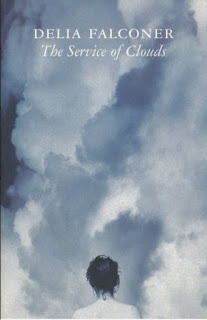The Service of Clouds

Delia Falconer's first novel was published to great success in 1997, being shortlisted for the Miles Franklin Award in 1998, and reviewed favourably in the New York Times that same year. To me, this book seems to have been around for a long time - perhaps it is because it is the sort of book that appeared on a thinking person's bookshelf, or because I have seen it numerous times in the one house (a friend's cottage in the Blue Mountains, appropriately). Or perhaps it is the subject matter, and that sense of age that comes with moss and mist, and the slow time of the setting - we begin a little earlier than this in introducing the characters, but essentially this is 1907 in Katoomba, with young and delicate unrequited love. Even without reading the review comparisons, the Marquez-like magical realism, or the Australian version thereof - is seen in the spirit-seeking Aunts protagonist Eureka lives with. On another level, the Blue Mountains and the Hydro Majestic in particular